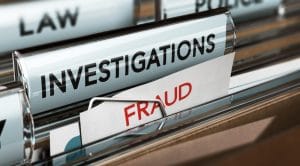 Why and when do Federal Grand Juries send out “target letters“? How likely is it that a person who receives a target letter is going to be indicted?
Why and when do Federal Grand Juries send out “target letters“? How likely is it that a person who receives a target letter is going to be indicted?
A Federal Grand Jury is an important body charged with investigating potential violations of federal law. Their chief power lies in their ability to subpoena witnesses to provide testimony and produce evidence. The Department of Justice follows specific protocols when a grand jury seeks to subpoena a “target” or “subject” in a given investigation.
The United States Attorneys’ Manual lays out these protocols starting at Section 9-11.150. According to the manual, a “target” linked to the crime under investigation by substantial evidence. Targets are those that the prosecutor considers likely to be indicted by the Grand Jury — that is, to become a defendant in a federal criminal case. A “subject” is an individual with a looser connection to a grand jury investigation. Some aspect of their conduct falls within the scope of the investigation.
Attempting to compel a target to testify or produce documents carries with it a potential for misunderstanding and unfair treatment. This is why prosecutors must first seek a target’s appearance through entirely voluntary means. A target that refuses to appear voluntarily may be compelled to do so by subpoena. Before a subpoena can be issued, though, the prosecutor must secure the approval of the Grand Jury as well as the relevant U.S. Attorney or Assistant Attorney General.
Important matters have to be considered before seeking a subpoena. The importance of the information being sought is important. So is the rarity of the information; if other witnesses could provide the same information, a subpoena is less likely. The likelihood of a claim of privilege (the right of a witness to legally refuse to answer the questions of grand jurors or prosecutors) also affects the subpoena decision. If a subpoena is sought and approved, the Department of Justice must comply with its policies and ensure that the witness is advised of his or her rights before proceeding.
Advisement of rights is also necessary with subjects of a Grand Jury investigation. This is accomplished either in a letter accompanying the subpoena or in a boilerplate form attached to the subpoena.
This is the general form that the Advice of Rights takes for both subjects and targets of Grand Jury investigations:
The Grand Jury is currently investigating potential violations of federal law involving: [here is attached a general description of the inquiry’s subject matter and the specific laws that may have been violated.] You may refuse to answer any question if answering the question truthfully would tend to incriminate you.
Anything you say, and any information you provide, to the Grand Jury may be used against you, either by the Grand Jury or in subsequent legal proceedings. If you are accompanied to the Grand Jury room by an attorney you have you retained, you will be given a reasonable opportunity to leave the room and privately consult with counsel at your discretion.
Grand Jury targets receive further advisement to make it clear that their conduct is under active investigation for violations of Federal law.
No comments:
Post a Comment